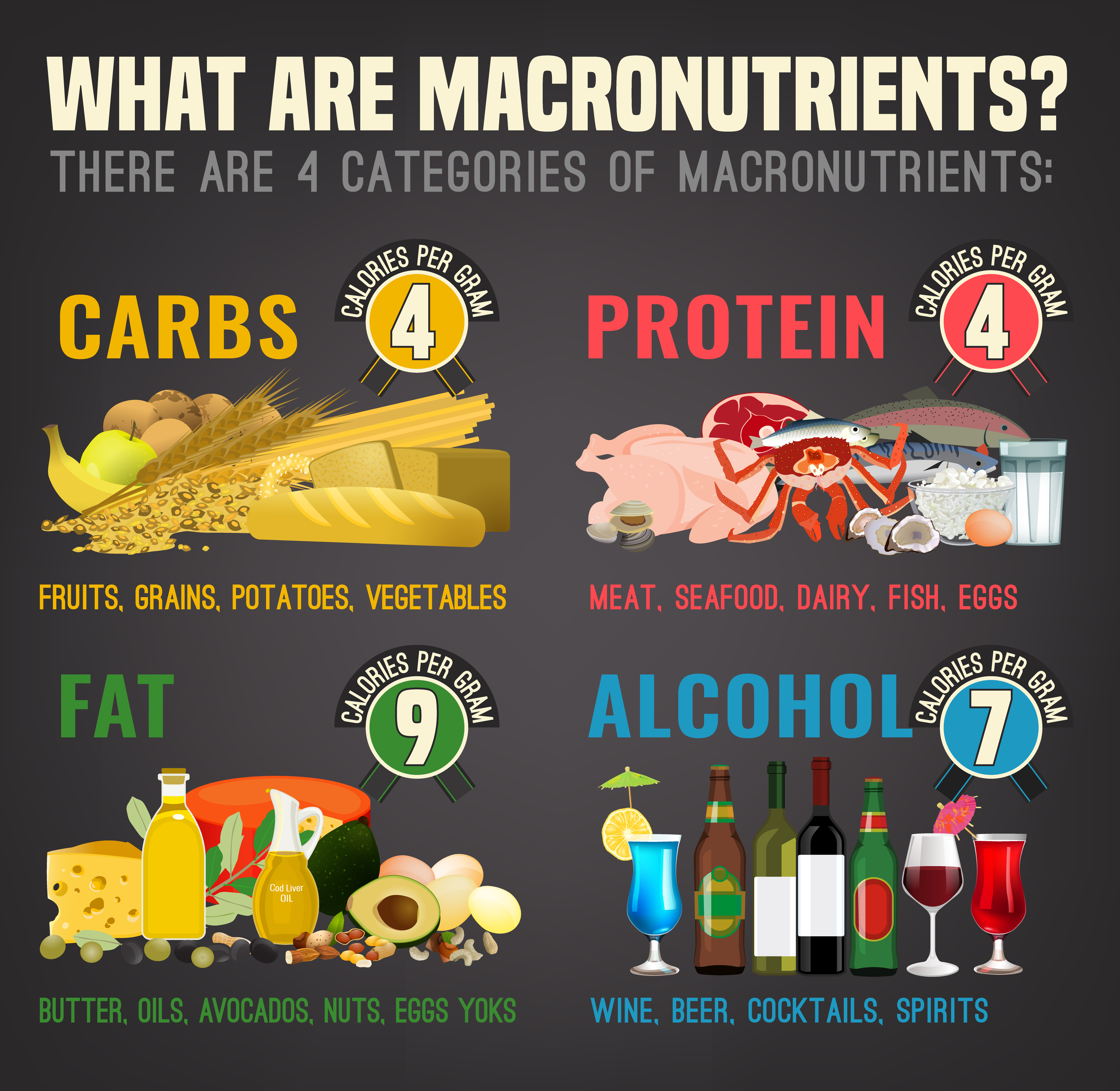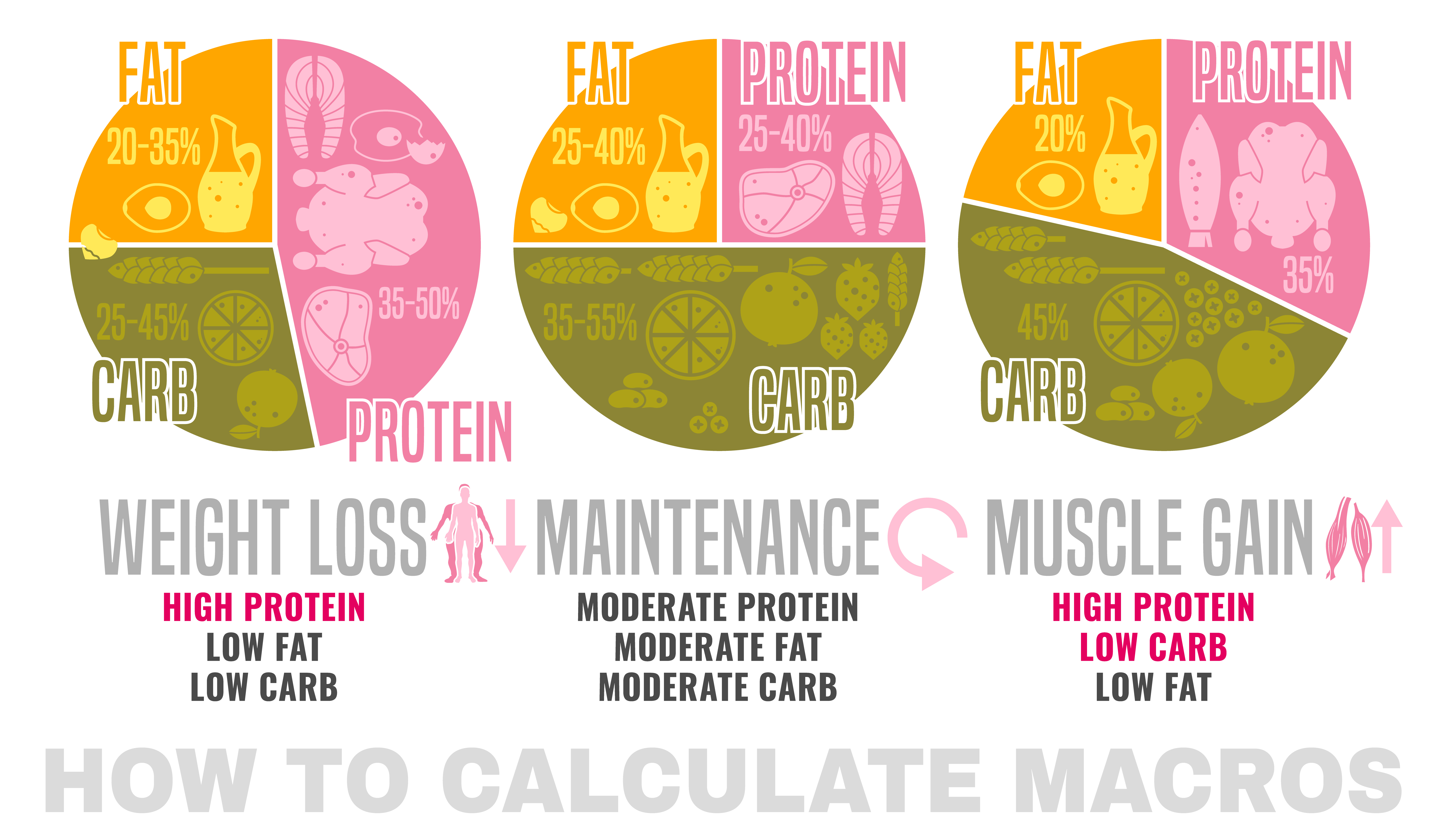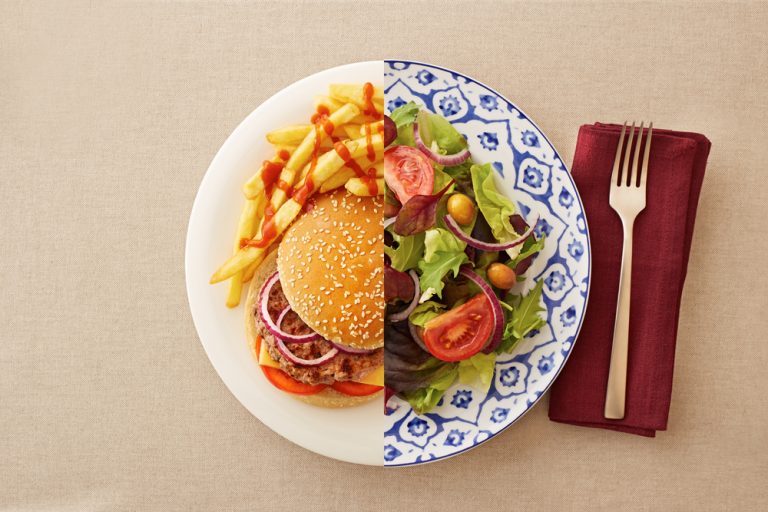During your stay at the city gym, when you finished lacing shoes before leaving the dressing room, you certainly heard more than one discussion about nutrition during the period of body fat reduction. Sentences of practitioners who do not develop their theoretical knowledge are strongly divided - some encourage lower consumption of fats during "sculpture", while others during the felling do not allow their wards to consume larger amounts of carbohydrates, supporting their opinion by stating that increased insulin concentration after eating saccharides lipolysis (which is often confused with beta-oxidation). What sentence do the authors of scientific publications have on the above topic? When preparing for a competition, bodybuilders should use a diet with a limited fat content and can follow a low-carb diet?
Hypothetical divagations
A dozen years ago, according to the media, the number one public enemy was fat. It was in his excessive consumption that the development of the obesity epidemic and problems with weight reduction were seen. At first glance, nothing strange - one gram of fat provides 9 kilocalories, compared to carbohydrates and protein (both macronutrients deliver 4 kcal for 1 gram), it is over 200% more. Guided by this argument, the competitors adhered to low-fat diets during preparation for the competition - was it a good choice?

In recent years, the Internet and TV have turned their views 180 degrees and the word "carbohydrates" has started to shiver on the back of every physique athlete. This was due to the not-so-accurate analysis that after eating several high-carbohydrate meals throughout the entire day, the state of chronic hyperinsulinemia persisted in our body. Insulin, as we remember from physiology, is responsible for the storage of adipose tissue, and its elevated concentration blocks lipolysis, i.e. the breakdown of triacylglycerol (the tip that we accumulate around the navel) into glycerol and free fatty acids. At first glance, we could think - Eureka! By limiting the intake of carbohydrates, we will increase the breakdown of body fat and achieve the dream figure. Unfortunately, this seemingly logical mechanism is incomplete, which will be soon.
War of macronutrients in the light of scientific research
There is scientific research in the professional literature that places diets with a limitation of carbohydrates in the spotlight. More interestingly, these are interventional studies. In the conclusions, we can read that the low carb diet resulted in a greater loss of stored fat compared to a diet with a higher carbohydrate content. Unfortunately, in each of these experiments, there is one (but very significant) "but". In glorifying low carb foods, these diets had a higher protein content, a macronutrient generating the highest satiety and the highest thermal effect of food [1,2].
When the amount of protein in both nutritional models was aligned, the low-carb charm passed and no significant differences in the amount of lost adipose tissue were observed compared to the group of people using the diet with a higher carbohydrate content [3]. At this point, the caloric balance comes into play (the missing piece of the insulin puzzle). Researchers agree that the fact of taking on the strength or effective losing of the bacon corresponds to the number of calories consumed from food, depleted of our daily energy expenditure (associated with both metabolic and physical activity).

Eating more calories than we burn in a day - we gain weight, analogically, eating less - we lose weight. Therefore, taking care of an appropriate energy deficit and supply of protein - regardless of whether we generate it "cutting" coals or fat - we will lose weight. In the age-old battle, it is worth citing an extremely popular scientific study in which the authors assessed the long-term impact of selected nutritional strategies (Atkins low-carbohydrate diet, Ornish's high-carbohydrate diet, Zone diet with an even proportion of all macronutrients and Weight Watchers) on weight loss and cardiovascular risk. Simply put, the participants were assigned to groups, educated, measurements were taken and after a year they were asked how strictly they followed the recommendations. After twelve months, it was observed that adherence to each diet contributed to a small loss of unnecessary ballast, but ... the best chance of success were people who were simply satisfied with the diet and conscientiously followed the guidelines.
It is also worth noting that participants, considering all four diets, complained exceptionally about the extreme restriction of fats or carbohydrates (that is, Ornish and Atkins diet). It should be added that in the studies mentioned, people who resemble typical Smiths rather than bodybuilders took part, so if you want to reveal your radiator or slim your thighs a little - use a diet that you will be able to adhere to taking into account energy deficit and adequate protein supply.
What about bodybuilders?
During strength training, the main source of energy is carbohydrates, and more specifically, muscle glycogen located in the muscle tissue. In order to maximize performance during training, it is recommended to take 4-7 g of carbohydrates for every kilogram of body weight depending on the training period [5]. Due to the higher supply of protein and energy deficit during the reduction period, achieving the recommended amount of coals seems to be problematic. So we can come up with an idea - let's cut off fats.
However, it was noticed that excessive restrictions in the supply of fats contribute to hormonal changes (mainly reduction of testosterone levels) that may promote the loss of lean body mass, which gave the bodybuilder away to reach the gold medal [6]. So what will be more beneficial for the player - lowering performance during training or reducing testosterone concentration?
The analysis of scientific research has shown that the more effective treatment during the reduction is to maintain full turnover on the training due to the increased supply of carbohydrates in comparison to diets with a higher share of fats. Considering the above dependencies, during preparation for the competition, Helms and co-workers [7] recommend using a menu containing 2.3-3.1 g protein/kg body weight, 15-30% of calories from fats, and the rest of the energy supplied from carbohydrates.
To sum up
If you are an ambitious amateur wanting to look good on the beach during the holidays - use a menu that matches your dietary preferences, remembering about the energy deficit and the proper participation of protein. However, when preparing for silhouetted attitudes, be definitely on carbohydrates, because they will allow you to do better training, keep more muscle mass and thus bring you closer to achieving the top position.
_____________________________________________________________________________________________________________________
- Volek J, Sharman M, Gómez A i wsp. Comparison of energy-restricted very low-carbohydrate and low-fat diets on weight loss and body composition in overweight men and women Nutr Metab (Lond) 2004 Nov 8;1(1):13.
- Volek JS, Phinney SD, Forsythe CE i wsp. Carbohydrate restriction has a more favorable impact on the metabolic syndrome than a low fat diet. Lipids 2009 Apr;44(4):297-309
- Veum VL, Laupsa-Borge J, Eng Ø. Visceral adiposity and metabolic syndrome after very high-fat and low-fat isocaloric diets: a randomized controlled trial. Am J Clin Nutr 2017 Jan;105(1):85-99
- Dansinger ML, Gleason JA, Griffith JL i wsp., Comparison of the Atkins, Ornish, Weight Watchers, and Zone diets for weight loss and heart disease risk reduction: a randomized trial. JAMA 2005 Jan 5;293(1):43-53.
- Slater G, Phillips SM. Nutrition guidelines for strength sports: sprinting, weightlifting, throwing events, and bodybuilding. J Sports Sci. 2011;29:S67–S77
- Sallinen J, Pakarinen A, Ahtiainen J, Kraemer WJ, Volek JS, Häkkinen K. Relationship between diet and serum anabolic hormone responses to heavy-resistance exercise in men. Int J Sports Med. 2004;25:627–633
- Helms ER, Aragon AA, Fitschen PJ. Evidence-based recommendations for natural bodybuilding contest preparation: nutrition and supplementation. J Int Soc Sports Nutr 2014 May 12;11:20







One Comment